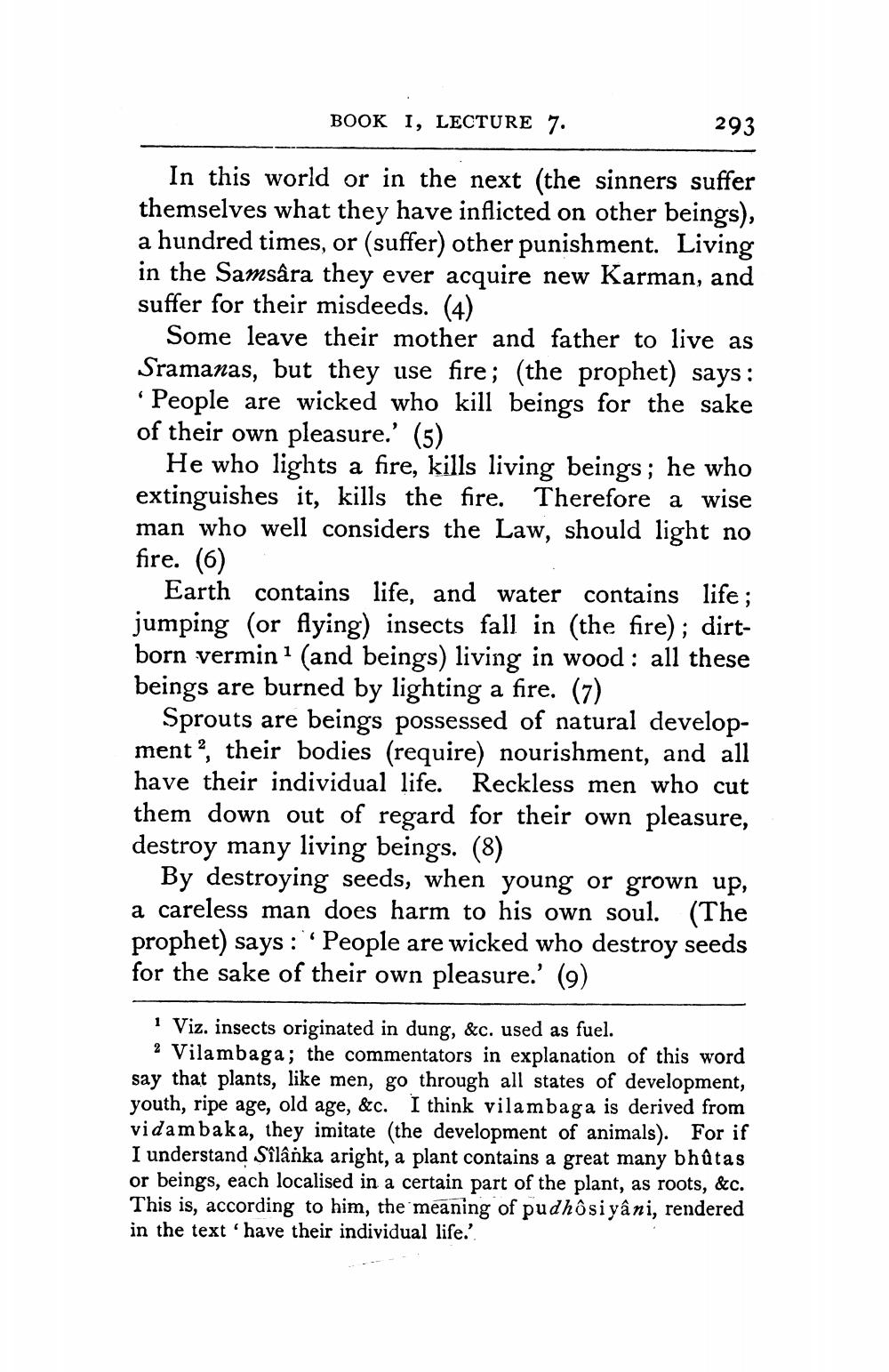________________
BOOK I, LECTURE 7.
293
In this world or in the next (the sinners suffer themselves what they have inflicted on other beings), a hundred times, or (suffer) other punishment. Living in the Samsâra they ever acquire new Karman, and suffer for their misdeeds. (4)
Some leave their mother and father to live as Sramanas, but they use fire; (the prophet) says: * People are wicked who kill beings for the sake of their own pleasure.' (5)
He who lights a fire, kills living beings; he who extinguishes it, kills the fire. Therefore a wise man who well considers the Law, should light no fire. (6)
Earth contains life, and water contains life; jumping (or flying) insects fall in (the fire); dirtborn vermin 1 (and beings) living in wood : all these beings are burned by lighting a fire. (7)
Sprouts are beings possessed of natural development?, their bodies (require) nourishment, and all have their individual life. Reckless men who cut them down out of regard for their own pleasure, destroy many living beings. (8)
By destroying seeds, when young or grown up, a careless man does harm to his own soul. (The prophet) says : People are wicked who destroy seeds for the sake of their own pleasure.' (9)
1 Viz. insects originated in dung, &c. used as fuel.
2 Vilambaga; the commentators in explanation of this word say that plants, like men, go through all states of development, youth, ripe age, old age, &c. I think vila mbaga is derived from vidambaka, they imitate (the development of animals). For if I understand Sîlânka aright, a plant contains a great many bhûtas or beings, each localised in a certain part of the plant, as roots, &c. This is, according to him, the meaning of pudhô siyâni, rendered in the text have their individual life.'.




